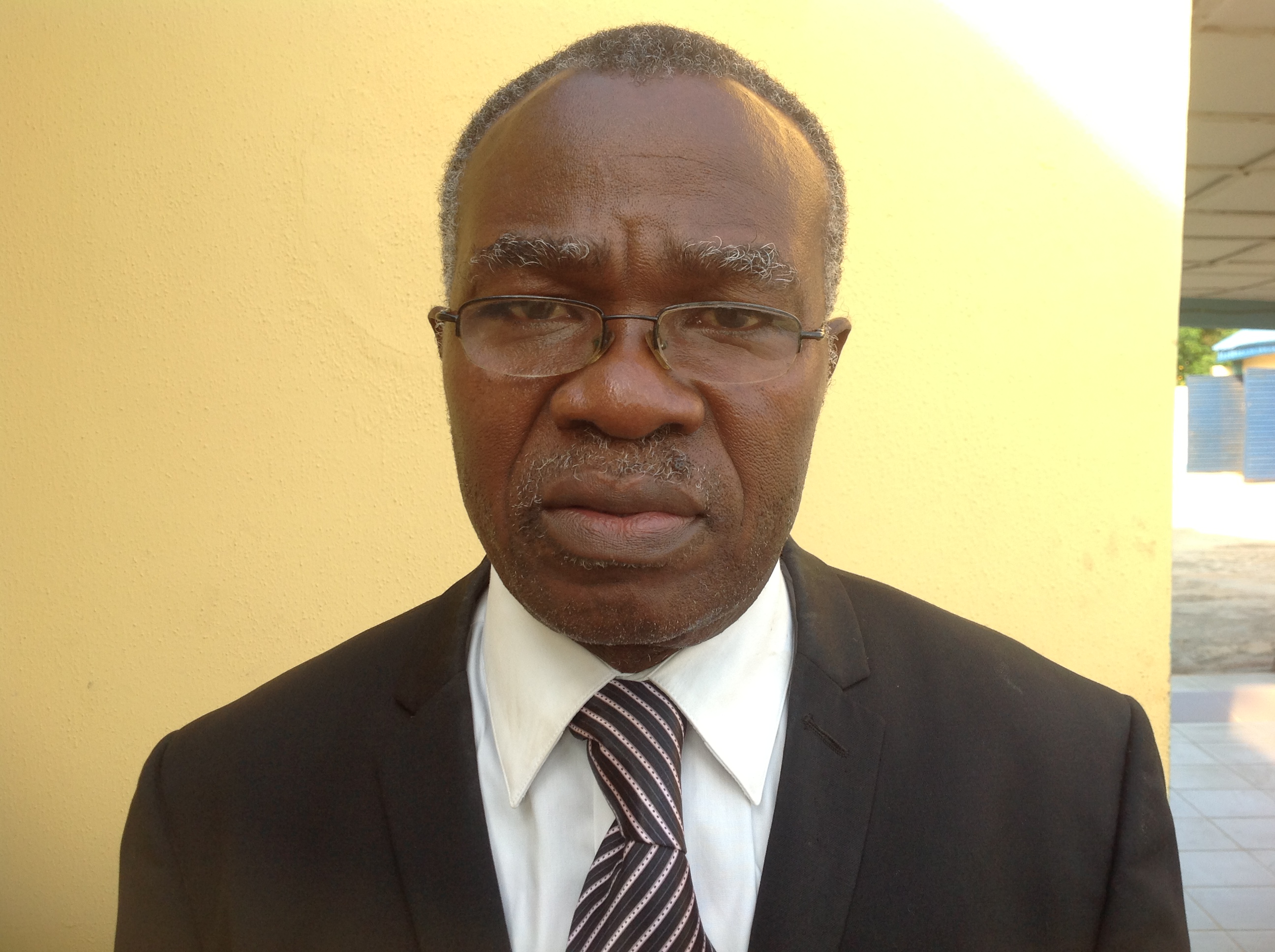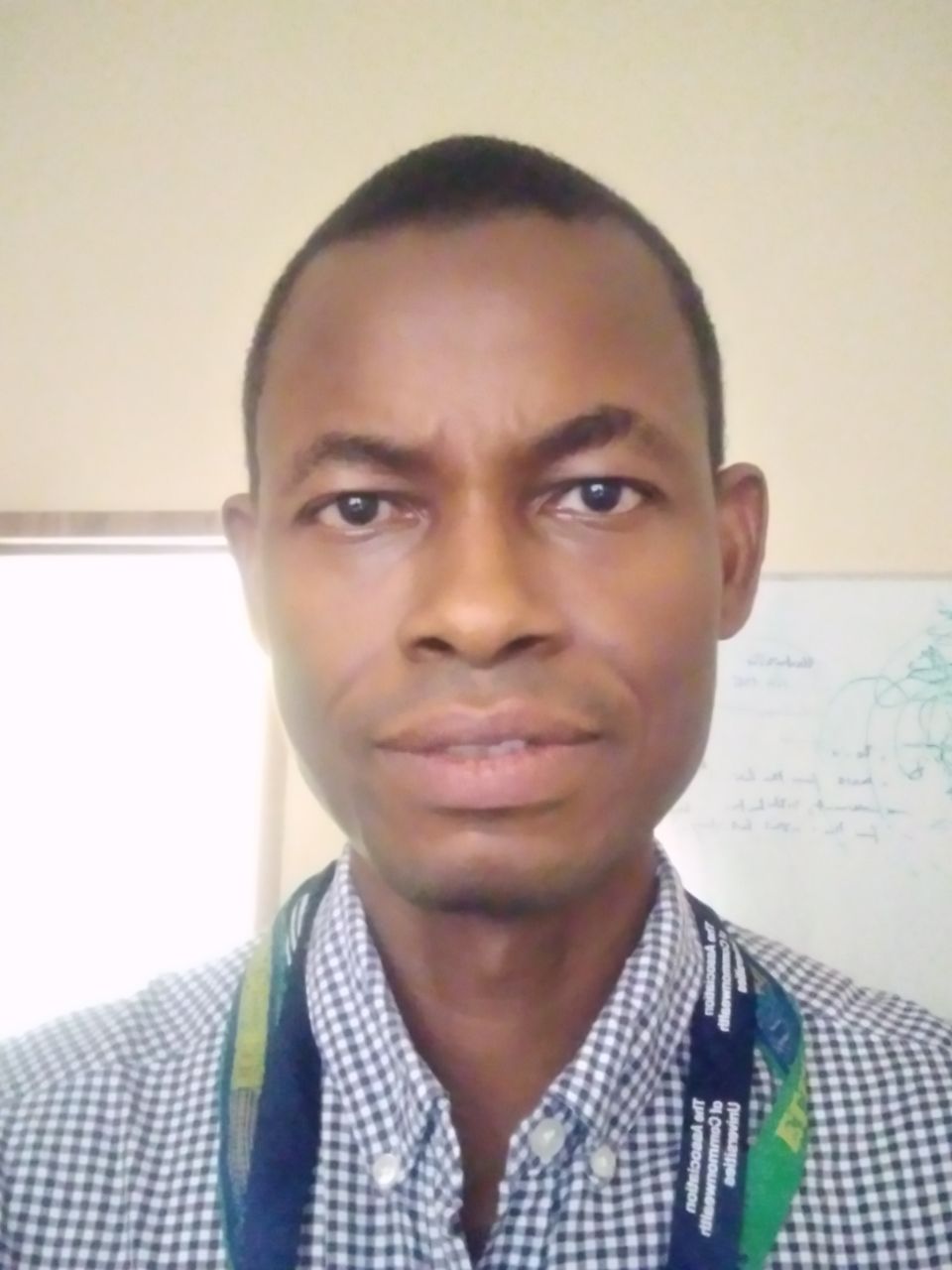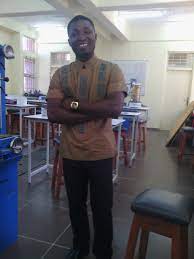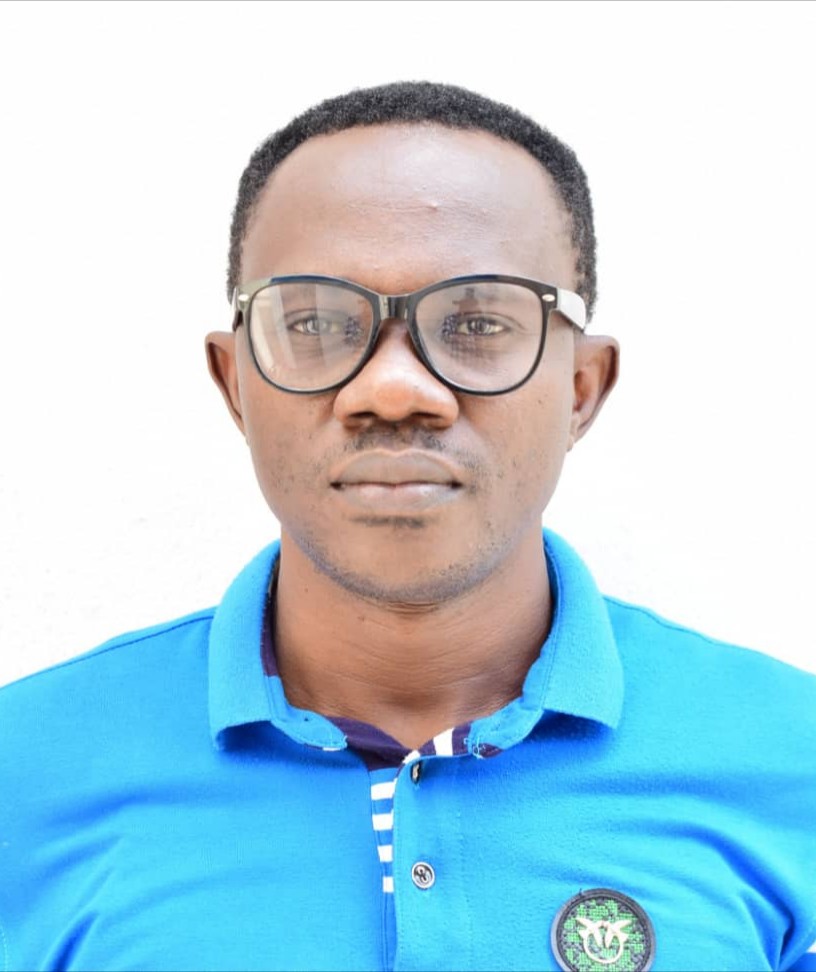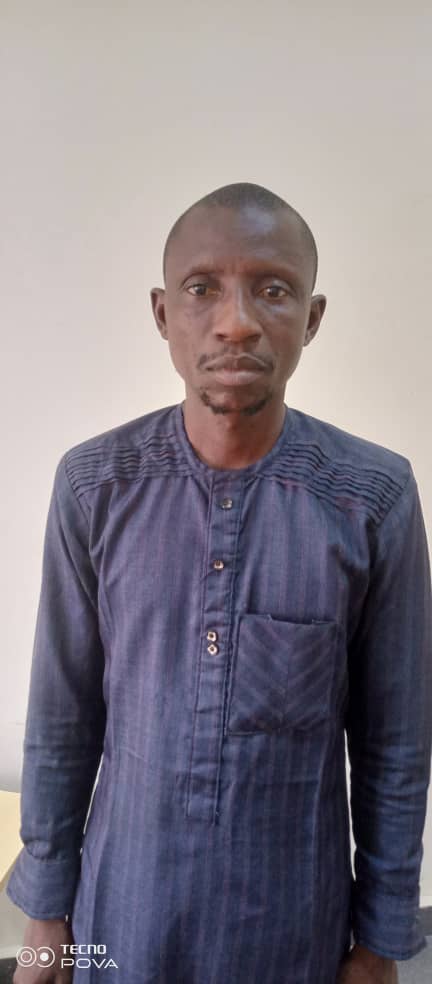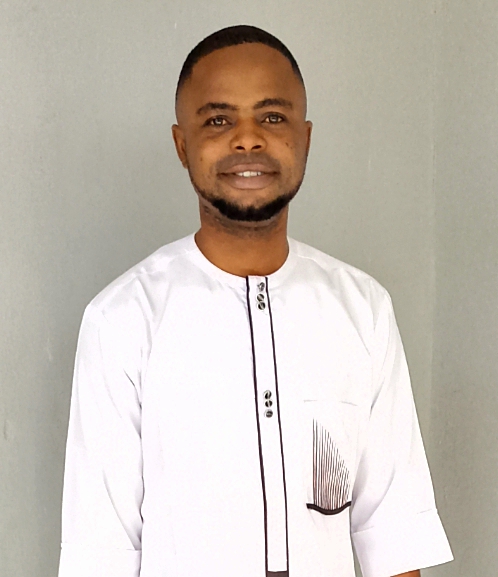|
200 LEVEL
DEPARTMENT OF AUTOMOTIVE ENGINEERING
|
|
Course Code
|
Course Learning Outcomes (CLOs)
|
|
CSC 201: Computer Programming I (3 Units)
|
|
CLO1
|
describe and apply computing, software engineering knowledge, best practices, and standards appropriate for complex engineering software systems
|
|
CLO2
|
develop competence in designing, evaluating, and adapting software processes and software development tools to meet the needs of an advanced development project through practical object-oriented programming exposure taught in concrete terms with a specific modern language – preferable selected from Python, Java or C++
|
|
CLO3
|
use widely available libraries to prepare them for machine learning, graphics and design simulations
|
|
CLO4
|
develop skills in eliciting user needs and designing an effective software solution
|
|
CLO5
|
recognise human, security, social, and entrepreneurial issues and responsibilities relevant to engineering software and the digitalisation of services
|
|
CLO6
|
acquire capabilities that can further be developed to make them productively employable by means of short Internet courses in specific areas
|
|
GNE 251: Engineering Drawing I (3 Units)
|
|
CLO1
|
Ability to present objects using different kind of projections such as isometric, oblique and orthographic projections.
|
|
CLO2
|
Ability to do free hand sketching.
|
|
CLO3
|
Ability to draw the isometric projection of an object from its orthographic projection and vice versa.
|
|
CLO4
|
Knowledge of different kinds of fasteners used in fabrication of objects and their representations.
|
|
CLO5
|
Brief knowledge of draughting and simulation packages.
|
|
GNE 253: Engineering Mathematics I (3 Units)
|
|
CLO1
|
solve qualitative problems based on vector and matrix analyses such as linear independence and dependence of vectors, rank etc.
|
|
CLO2
|
describe the concepts of limit theory and nth order differential equations and their applications to physical phenomena
|
|
CLO3
|
solve the problems of differentiation of functions of two variables and know about the maximization and minimization of functions of several variables
|
|
CLO4
|
describe the applications of double and triple integration in finding the area and volume of engineering solids, and explain the qualitative applications of Gauss, Stoke’s and Green’s theorem
|
|
CLO5
|
explain ordinary differential equations and applications, and develop a mathematical model of linear differential equations, as well as appreciate the necessary and sufficient conditions for total differential equations
|
|
CLO6
|
analyse basic engineering models through partial differential equations such as wave equation, heat conduction equation, etc., as well as fourier series, initial conditions and its applications to different engineering processes
|
|
GNE 255: Applied Mechanics (3 Units)
|
|
CLO1
|
explain the fundamental principles of applied mechanics, particularly equilibrium analysis, friction, kinematics and momentum.
|
|
CLO2
|
identify, formulate, and solve complex engineering problems by applying principles of engineering, science, mathematics and applied mechanics.
|
|
CLO3
|
synthesize Newtonian Physics with static analysis to determine the complete load impact (net forces, shears, torques, and bending moments) on all components (members and joints) of a given structure with a load.
|
|
CLO4
|
apply engineering design principles to produce solutions that meet specified needs with consideration of public health, safety, and welfare, as well as global, cultural, social, environmental, and economic factors.
|
|
GNE 257: Fundamental of Electrical Engineering I (2 Units)
|
|
CLO1
|
discuss the fundamental concepts of electricity and electrical d.c. circuits
|
|
CLO2
|
state, explain and apply the basic d.c. circuit theorems
|
|
CLO3
|
explain the basic a.c. circuit theory
|
|
CLO4
|
apply to solution of simple circuits
|
|
GNE 259: Materials Science (3 Units)
|
|
CLO1
|
demonstrate the role of atoms and molecules (aggregates of atoms) in the building of solid/condensed matter known as engineering materials, the electrons quantum numbers and how the electrons are arranged in different atomic elements, and explain the role of electronic configuration and valence electrons in bonding.
|
|
CLO2
|
define metals, alloys and metalloids, demonstrate mental picture of the solid mineral resources development as a relay race among four ‘athletes’: geologist, mining engineer, mineral processing technologist, process metallurgical engineer, and classify metallurgical engineering into 3Ps: process, physical and production.
|
|
CLO3
|
explain the relationship between structure and properties of materials, characteristics, components and compositions of phase diagrams and phase transformations of solid solutions.
|
|
CLO4
|
define ceramics, glass and constituents of glasses and understand application of ceramics in mining, building, art and craft industries.
|
|
CLO5
|
define and classify polymers as a class of engineering materials and polymeric materials, demonstrate polymerisation reactions, their types and mechanism, and applications of polymers.
|
|
CLO6
|
define properties, types and application of composite materials and fibres (synthetic and natural).
|
|
CLO7
|
define and classify nanomaterials, demonstrate applications of nanomaterials, concept, design and classification of fracture mechanics, corrosion classification, including the five principal ways of controlling corrosion and metal finishing processes such as sherardising, galvanising and anodizing.
|
|
CLO8
|
identify factors affecting the performance and service life of engineering materials/metals and metallography of metals/materials (materials anatomy), which enables metallurgical and materials engineers to prescribe appropriate solutions to test metals/materials fitness in service through structure-property-application relationships.
|
|
GNE 297: Fundamental of Electrical Engineering Lab. I (1 Units)
|
|
CLO1
|
Identify resistors and resistor colour coding.
|
|
CLO2
|
Experimentally verify the basic circuit theorems.
|
|
CLO3
|
Measure power and power factor in ac circuits.
|
|
CLO4
|
Design and experiment potential diver circuits.
|
|
GST 215: Entrepreneurship I (2 Units)
|
|
CLO1
|
explain the concepts and theories of entrepreneurship, intrapreneurship, opportunity seeking, new value creation and risk-taking.
|
|
CLO2
|
state the characteristics of an entrepreneur.
|
|
CLO3
|
analyse the importance of micro and small businesses in wealth creation, employment generation and financial independence.
|
|
CLO4
|
engage in entrepreneurial thinking.
|
|
CLO5
|
identify key elements in innovation.
|
|
CLO6
|
describe the stages in enterprise formation, partnership and networking, including business planning.
|
|
CLO7
|
describe contemporary entrepreneurial issues in Nigeria, Africa and the rest of the world.
|
|
GST 205: Nigerian Peoples and Cultures (1 Unit)
|
|
CLO1
|
analyse the historical foundation of Nigerian cultures and arts in pre-colonial times.
|
|
CLO2
|
identify and list the major linguistic groups in Nigeria.
|
|
CLO3
|
explain the gradual evolution of Nigeria as a political entity.
|
|
CLO4
|
analyse the concepts of trade and economic self-reliance of Nigerian peoples in relation to national development.
|
|
CLO5
|
enumerate the challenges of the Nigerian state regarding nation building.
|
|
CLO6
|
analyse the role of the judiciary in upholding fundamental human rights.
|
|
CLO7
|
identify the acceptable norms and values of the major ethnic groups in Nigeria.
|
|
CLO8
|
list possible solutions to identifiable Nigerian environmental, moral and value problems.
|
|
GNE 252: Workshop Practice (2 Units)
|
|
CLO1
|
identify various basic hands and machine tools, analogue and digital measurement devices and instruments, and acquire skills in their effective use and maintenance.
|
|
CLO2
|
practically apply basic engineering technologies, including metrology, metal forming and joining, materials removal, and machine tooling.
|
|
CLO3
|
master workshop and industrial safety practices, accident prevention and ergonomics.
|
|
CLO4
|
physically recognise different electrical & electronic components like resistances, inductances, capacitances, diodes, transistors and their ratings.
|
|
CLO5
|
connect electric circuits, understand different wiring schemes, and check ratings of common household electrical appliances and their basic maintenance.
|
|
CLO6
|
determine household and industrial energy consumption, and understand practical energy conservation measures.
|
|
GNE 254: Engineering Mathematics II (3 Units)
|
|
CLO1
|
describe physical systems using ordinary differential equations (ODEs).
|
|
CLO2
|
explain the practical importance of solving ODEs, solution methods, and analytically solve a wide range of ODEs, including linear constant coefficient types.
|
|
CLO3
|
numerically solve differential equations using MATLAB and other emerging applications.
|
|
CLO4
|
perform calculus operations on vector-valued functions, including derivatives, integrals, curvature, displacement, velocity, acceleration, and torsion, as well as on functions of several variables, including directional derivatives and multiple integrals.
|
|
CLO5
|
solve problems using the fundamental theorem of line integrals, Green's theorem, the divergence theorem, and Stokes' theorem, and perform operations with complex numbers.
|
|
CLO6
|
apply the concept and consequences of analyticity and the Cauchy-Riemann equations and of results on harmonic and entire functions of complex variables, as well as the theory of conformal mapping to solve problems from various fields of engineering.
|
|
CLO7
|
evaluate complex contour integrals directly and by the fundamental theorem, apply the Cauchy integral theorem in its various versions, and the Cauchy integral formula
|
|
GNE 256: Fundamentals of Fluid Mechanics (2 Units)
|
|
CLO1
|
explain the properties of fluids.
|
|
CLO2
|
determine forces in static fluids and fluids in motion.
|
|
CLO3
|
determine whether a floating body will be stable.
|
|
CLO4
|
determine the effect of various instruments, (valves, orifices, bends and elbows) on fluid flow in pipes.
|
|
CLO5
|
measure flow parameters with venturi meters, orifice meters, weirs, etc.
|
|
CLO6
|
perform calculations based on principles of mass, momentum and energy conservation.
|
|
CLO7
|
perform dimensional analysis and simple fluid modelling problems.
|
|
CLO8
|
specify the type and capacity of pumps and turbines for engineering applications.
|
|
GNE 258: Fundamental of Electrical Engineering II (2 Units)
|
|
CLO1
|
use computational tools and packages in the design of electric power systems, electronic, and digital equipment and systems.
|
|
CLO2
|
solve common, technical problems in the design of electronics and electrical circuits including electric power systems, and seek specialist advice as needed for more complicated problems.
|
|
CLO3
|
identify the process of innovation and the main factors of entrepreneurship and creative thinking, and apply methods of product development.
|
|
CLO4
|
apply project management methods to the planning of projects.
|
|
CLO5
|
plan, manage and analyse projects, using current best-practice methods.
|
|
CLO6
|
carry out a cost estimate for a design solution, and understand the uncertainties associated with the cost estimation process.
|
|
GNE 260: Strength of Materials I (3 Units)
|
|
CLO1
|
recognise a structural system that is stable and in equilibrium.
|
|
CLO2
|
determine the stress-strain relation for single and composite members based on Hooke's law.
|
|
CLO3
|
estimate the stresses and strains in single and composite members due to temperature changes.
|
|
CLO4
|
evaluate the distribution of shear forces and bending moments in beams with distributed and concentrated loads.
|
|
CLO5
|
determine bending stresses and their use in identifying slopes and deflections in beams.
|
|
CLO6
|
use Mohr's circle to evaluate the normal and shear stresses in a multi-dimensional stress system and transformation of these stresses into strains.
|
|
CLO7
|
evaluate the stresses and strains due to torsion on circular members.
|
|
CLO8
|
determine the buckling loads of columns under various fixity conditions at the ends.
|
|
GNE 262: Fundamentals of Thermodynamics (2 Units)
|
|
CLO1
|
describe basic concepts of thermodynamics, quantitative relations of Zeroth, first, second and third laws.
|
|
CLO2
|
define and explain system (surrounding, closed and open system), control volume and control mass, extensive and intensive properties.
|
|
CLO3
|
calculate absolute and gage pressure, and absolute temperature, calculate changes in kinetic, potential, enthalpy and internal energy.
|
|
CLO4
|
evaluate the properties of pure substances i.e. evaluate the state of the pure substances such as compressed liquid, saturated liquid-vapour mixture and superheated vapour using property diagrams and tables; arrange the ideal and real gas equations of state.
|
|
CLO5
|
formulate the first law of thermodynamics for a closed system i.e. organize the change in energy in the closed systems via heat and work transfer.
|
|
CLO6
|
distinguish heat transfer by conduction, convection and radiation, and calculate the amount of heat energy transferred.
|
|
CLO7
|
calculate the changes in moving boundary work, spring work, electrical work and shaft work in closed systems
|
|
CLO8
|
apply the first law of thermodynamics for closed systems and construct conservation of mass and energy equations.
|
|
CLO9
|
formulate the first law of thermodynamics to the open systems i.e. describe steady-flow open system, apply the first law of thermodynamics to the nozzles, diffusers, turbines, compressors, throttling valves, mixing chambers, heat exchangers, pipe and duct flow.
|
|
CLO10
|
construct energy and mass balance for unsteady-flow processes.
|
|
CLO11
|
evaluate thermodynamic applications using second law of thermodynamics.
|
|
CLO12
|
calculate thermal efficiency and coefficient of performance for heat engine, refrigerators and heat pumps.
|
|
CLO13
|
restate perpetual-motion machines, reversible and irreversible processes.
|
|
GNE 296: Fundamental of Fluid Mechanics Lab. (1 Unit)
|
|
CLO1
|
Utilize basic measurement techniques of fluid mechanics.
|
|
CLO2
|
Discuss the differences among measurement techniques, their relevance and applications.
|
|
CLO3
|
Measure fluid pressure and relate it to flow velocity.
|
|
CLO4
|
Demonstrate practical understanding of the various equations of Bernoulli.
|
|
CLO5
|
Demonstrate practical understanding of friction losses in internal flows.
|
|
CLO6
|
Demonstrate the ability to write clear lab reports.
|
|
GNE 298: Fundamental of Electrical Engineering II (1 Units)
|
|
CLO1
|
Demonstrate practical proficiency in Alternating current waveforms
|
|
CLO2
|
Design and Construction of Monostable Multivibrator,
|
|
CLO3
|
Design and Construction of Astable Multivibrator,
|
|
CLO4
|
Design and Construction of Bistable Multivibrator, Series and parallel Resonant Circuits,
|
|
CLO5
|
Design and Construction of filters.
|
|
MEE 202: Engineering Drawing II (2 Units)
|
|
CLO1
|
Mastery of the use of projections to prepare detailed working drawing of objects and designs.
|
|
CLO2
|
Develop skills in parametric design to aid their ability to see design in the optimal specification of materials and systems to meet needs.
|
|
CLO3
|
Be able to analyze and optimize designs on the basis of strength and material minimization.
|
|
CLO4
|
Get their appetites wetted in seeing the need for the theoretical perspectives that create the basis for the analysis that are possible in design and optimization, and recognize/understand the practical link to excite their creativity and ability to innovate.
|
|
CLO5
|
Be able to translate their thoughts and excitements to produce shop drawings for multi-physical, multidisciplinary design.
|
|
GST 210: Introduction to Musicology (1 Unit)
|
|
CLO1
|
A deep understanding of the history and development of music, including different musical styles, genres, and traditions, and their social, political, and cultural contexts.
|
|
CLO2
|
The ability to analyze and interpret musical works and performances from different periods and cultures, using a range of critical and analytical methods.
|
|
CLO3
|
An appreciation of the diversity of musical expression and an understanding of how different musical traditions and practices are shaped by cultural, technological, and ideological factors.
|
|
CLO4
|
The ability to evaluate and critique musical works and performances, and to contribute to ongoing debates and discussions within the field of musicology.
|
|
CLO5
|
The development of strong research skills, including the ability to conduct original research, collect and analyze data, and present findings in a clear and compelling way.
|
|
GST 216: Entrepreneurship II (2 Units)
|
|
CLO1
|
Demonstrate ability to effectively handle event pictures.
|
|
CLO2
|
Demonstrate ability to use photoshop.
|
|
CLO3
|
Demonstrate ability to effectively plan and manage events.
|
|
CLO4
|
Demonstrate ability to make shoes.
|
|
CLO5
|
Develop skills for fashion designing.
|
|
CLO5
|
Machine Dynamics and non-traditional machining.
|

